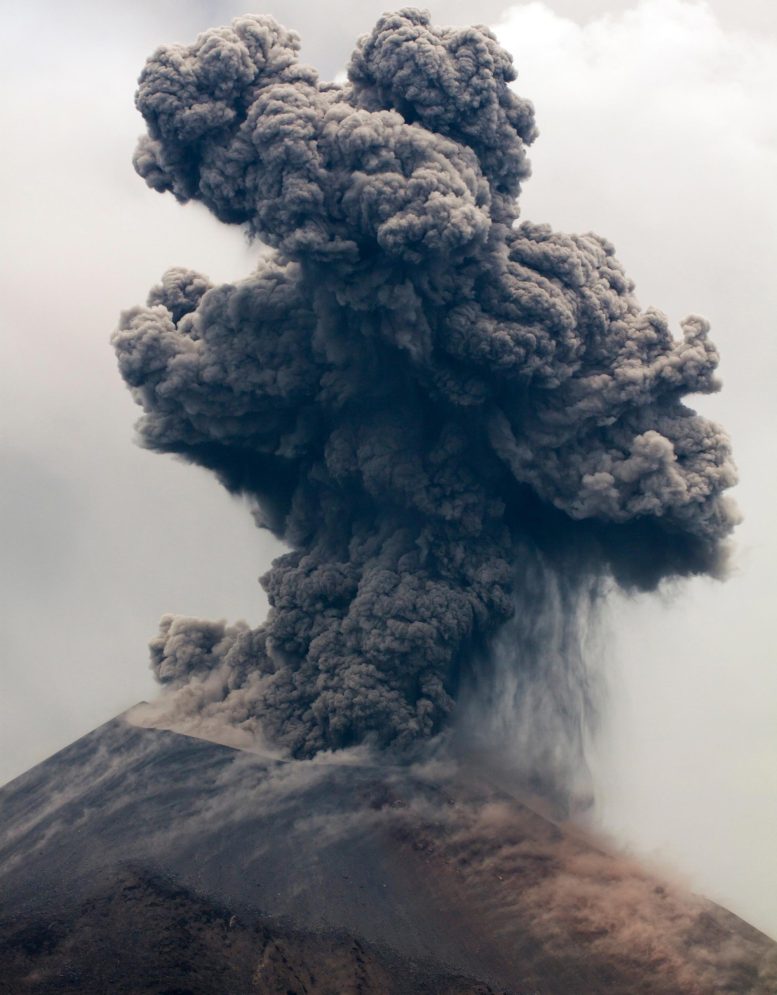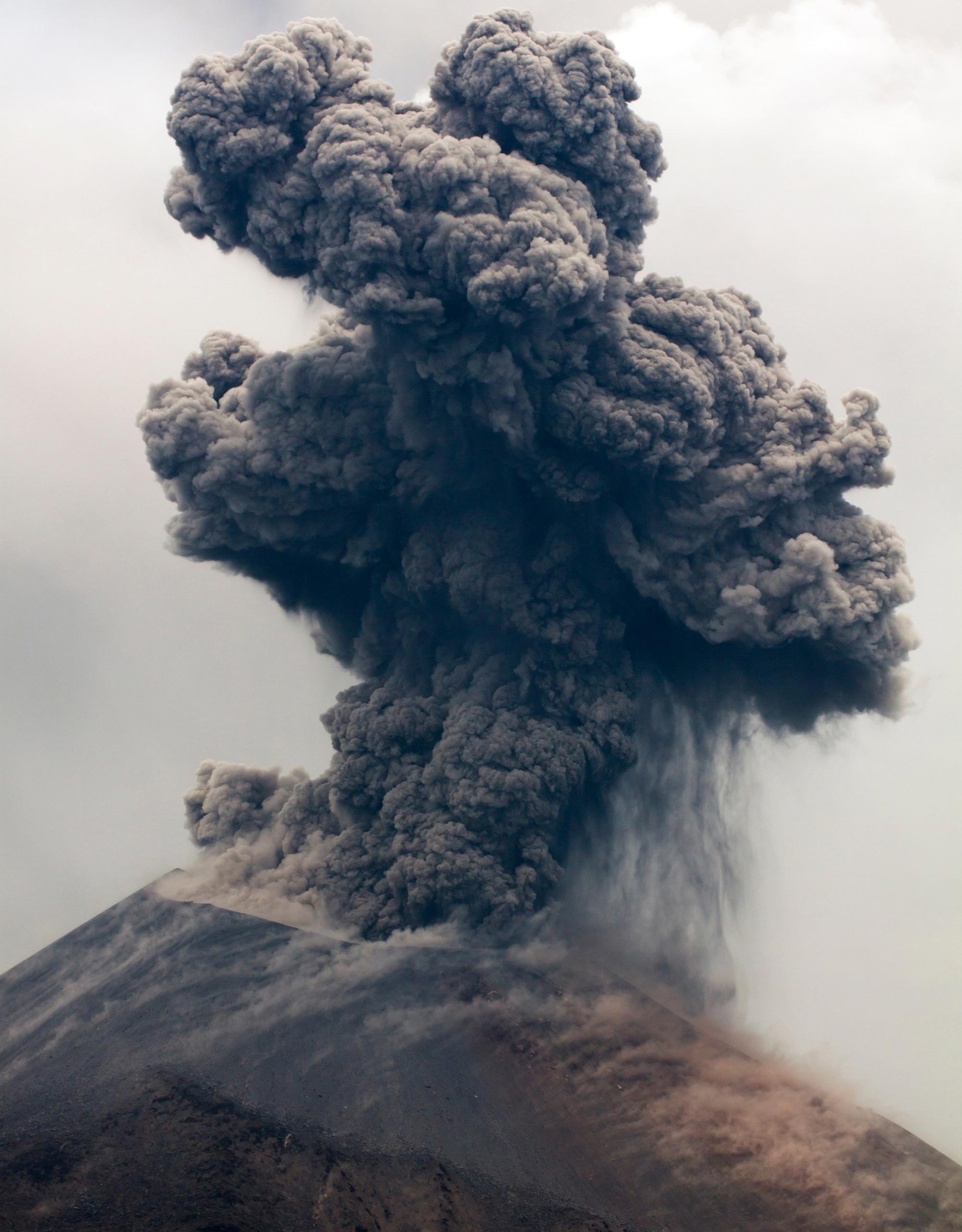[ad_1]

Anak Krakatau volcano erupting.
The dramatic collapse of Indonesia’s Anak Krakatau volcano in December 2018 resulted from long-term destabilizing processes, and was not triggered by any distinct adjustments within the magmatic system that would have been detected by present monitoring strategies, new analysis has discovered.
The volcano had been erupting for round six months previous to the collapse, which noticed greater than two-thirds of its top slide into the ocean because the island halved in space. The occasion triggered a devastating tsunami, which inundated the coastlines of Java and Sumatra and led to the deaths of greater than 400 folks.
A staff led by the College of Birmingham examined volcanic materials from close by islands for clues to find out whether or not the highly effective, explosive eruption noticed after the collapse had itself triggered the landslide and tsunami. Their outcomes are printed in Earth and Planetary Science Letters.
Working with researchers on the Bandung Institute of Know-how, the College of Oxford and the British Geological Survey, the staff appeared on the bodily, chemical and microtextural traits of the erupted materials. They concluded that the massive explosive eruption related to the collapse was most likely attributable to the underlying magmatic system changing into destabilized because the landslide obtained underway.
This implies the catastrophe was much less more likely to have been attributable to magma forcing its approach to the floor and triggering the landslide. Present volcano monitoring strategies file seismic exercise and different indicators attributable to magma rising via the volcano, however since this occasion was not triggered from inside, it could not have been detected utilizing these strategies.
Dr. Sebastian Watt, within the College of Birmingham’s Faculty of Geography, Earth and Environmental Sciences, is senior creator on the paper. He mentioned: ‘This sort of volcanic hazard is uncommon, extraordinarily onerous to foretell, and sometimes devastating. Our findings present that, though there was a dramatic, explosive eruption after the collapse of Anak Krakatau, this was triggered by the landslide releasing stress on the magma system – like a champagne cork popping.’
The outcomes current a problem for predicting future hazards at volcanic islands. Dr. Mirzam Abdurrachman, from the Bandung Institute of Know-how, explains: ‘If giant volcanic landslides happen because of long-term instability, and may happen with none distinctive change within the magmatic exercise on the volcano, this implies they will occur instantly and with none clear warning.
‘This discovering is necessary for individuals who dwell in areas surrounded by energetic volcanoes and volcanic islands in locations akin to Indonesia, Philippines and Japan.’
Lead creator, Kyra Cutler, on the College of Oxford mentioned: ‘Evaluating longer-term progress and deformation patterns of volcanoes will assist to supply a greater understanding of the probability of failure – that is will probably be significantly related for Anak Krakatau because it rebuilds. Figuring out prone areas, together with efforts to develop non-seismic tsunami detection, will enhance total hazard administration methods for communities who’re in danger.’
Professor David Tappin, (British Geological Survey, College School, London) led the marine surveys that mapped the deposits ensuing from the 2018 Anak Krakatau eruption collapse (Hunt et al. 2021). He mentioned: ‘It’s uncommon that we now have the chance to check such an eruption and tsunami, with the final occasion, Ritter island, over 100 years in the past. The leads to the paper reveal that the driving mechanism was from long run destabilization, quite than an instantaneous explosive occasion. It is a main shock discovery and can result in a re-evaluation of mitigate the hazard from volcanic failures and their related tsunamis.’
Reference: “Downward-propagating eruption following vent unloading implies no direct magmatic set off for the 2018 lateral collapse of Anak Krakatau” by Kyra S. Cutler, Sebastian F. L. Watt, Mike Cassidy, Amber L. Madden-Nadeau, Samantha L. Engwell, Mirzam Abdurrachman, Muhammad E. M. Nurshal, David R. Tappin, Steven N. Carey, Alessandro Novellino, Catherine Hayer, James E. Hunt, Simon J. Day, Stephan T. Grilli, Idham A. Kurniawan and Nugraha Kartadinata, 14 January 2022, Earth and Planetary Science Letters.
DOI: 10.1016/j.epsl.2021.117332
